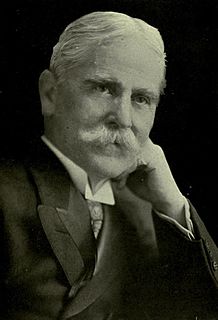A Quote by Richard Morris
The democratic and pedestrian character of the new Mass itself seems to invite the ditties that pass for hymns these days.
Quote Topics
Related Quotes
Strictly speaking, the mass, as a psychological fact, can be defined without waiting for individuals to appear in mass formation. In the presence of one individual we can decide whether he is "mass" or not. The mass is all that which sets no value on itself good or ill based on specific grounds, but which feels itself "just like everybody," and nevertheless is not concerned about it; is, in fact, quite happy to feel itself as one with everybody else.
When I did the Abyssinian mass, I went through the whole history of the church music and the gospel music, even with the Anglo American hymns, the Afro American hymns, the spirituals and how it developed, up to Thomas Dorsey and the Dixie Hummingbirds, going through the history of the music, jazz musicians.
The Second Wave Society is industrial and based on mass production, mass distribution, mass consumption, mass education, mass media, mass recreation, mass entertainment, and weapons of mass destruction. You combine those things with standardization, centralization, concentration, and synchronization, and you wind up with a style of organization we call bureaucracy.
True perfection seems imperfect,
yet it is perfectly itself.
True fullness seems empty,
yet it is fully present.
True straightness seems crooked.
True wisdom seems foolish.
True art seems artless.
The Master allows things to happen.
She shapes events as they come.
She steps out of the way
and lets the Tao speak for itself.
I believe Tunisia and Egypt should look to Turkey and see what not to do. Turkey seems to be a secular and democratic country but it is only a show. We are losing the effectiveness of democratic institutions like parliament and judiciary. They now are turning into tools for the benefit of a president-ordering system. A democratic government is possible only on a comprehensive democratic base surrounded by the participatory action of ordinary people.
One of the things that is wonderful about hymns is that they are a sort of universally shared poetry, at least among certain populations. There isn't much of that anymore either. There are very few poems people can recite, but there are quite a few hymns that, if you hum a few bars, people can at least come up with two verses. Many of the older hymns are very beautiful.
More and more too, the old name absorbs into me. Mannahatta, 'the place encircled by many swift tides and sparkling waters.' How fit a name for America's great democratic island city! The word itself, how beautiful! how aboriginal! how it seems to rise with tall spires, glistening in sunshine, with such New World atmosphere, vista and action!
I think the very idea of character, of developing not just grit, but empathy and curiosity, emotional intelligence - you know, the things that I want my own daughters to develop - the idea that we're going to get there through rewards and punishments seems completely at odds with the idea of character itself.






































